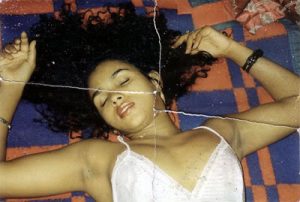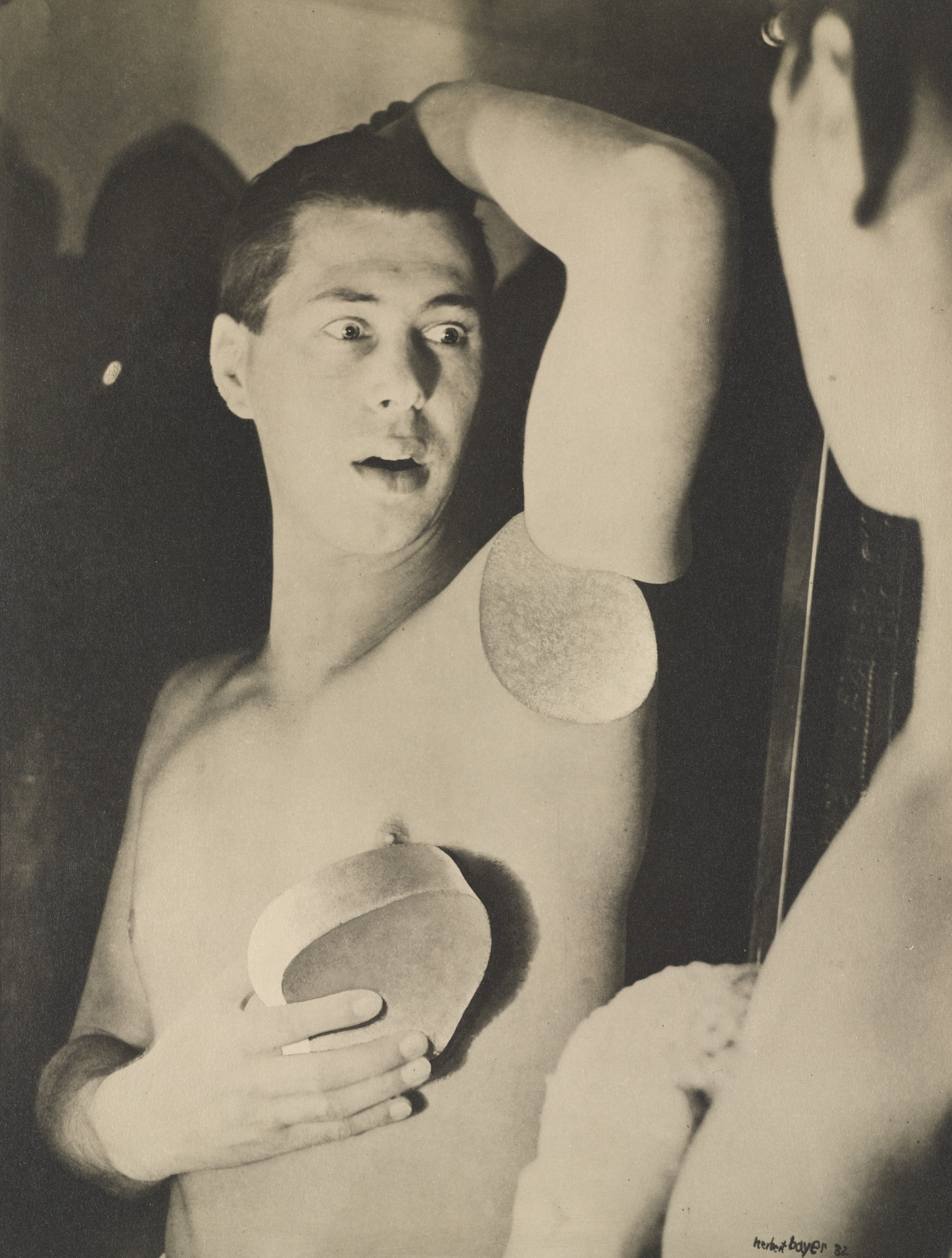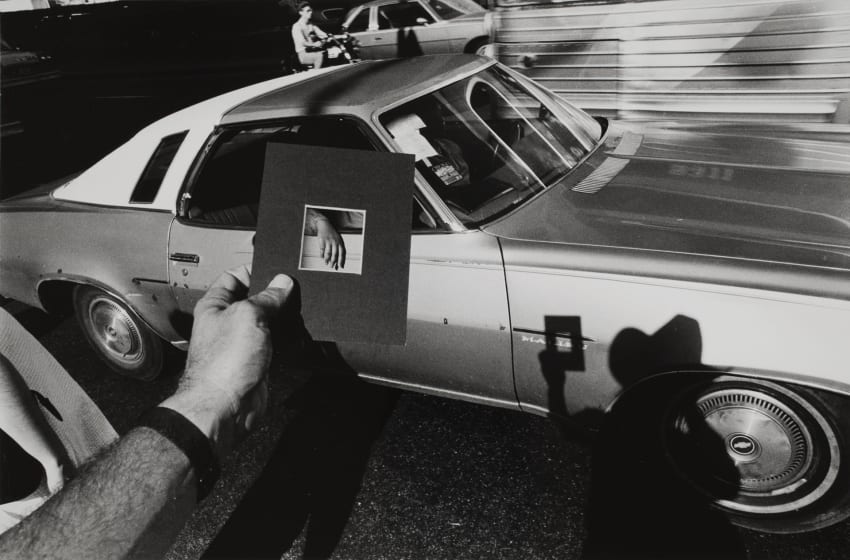
Joachim Schmid, No.460, Rio de Janeiro, December 1996

It all started on a chilly morning in November, far too cold for that time of year,
but that didn’t matter to her. I noticed her as she hesitantly left
the main road she took daily to get to work. I followed her to
the public gardens a few blocks away, where she finally stopped,
sinking onto a bench. I can’t describe the rage I felt the moment
her delicate fingers brushed against that rotten wood, still I kept watching.
Dirty, isolated, and old gardens, and yet she chose them as her destination;
"I'm not really here," her gaze said, and that was enough for me.
Then, while her body froze, surrounded by frost, her eyes melted into
tears, and her mind vanished— who knows where, who knows if— into fog.
I easily grew accustomed to this erratic routine— this and more, just to be close to her, close enough to be able imagine the scent of her skin. I
grew used to it with great joy, yes, until hours of waiting turned into days, even weeks,
and with every second, with every centimeter of distance from her, my bones began
to shake in pain.
I tried, I swear I did, to wait for her with exhausting patience outside her building's
door, sitting next to the café, closed at that early hour. She didn’t seem to return
my affection, didn’t even seem to notice— perhaps she found some sadistic pleasure
in abandoning me on the edge of the road, like a stray dog, beneath the snow of January and
the heat of July?
Do you think she enjoyed ignoring my starved gaze, or making me guess
the time of her next appearance?
And yet I kept trusting her blindly, because it clearly wasn't that fallen angel's fault, no. There had to be a reason she suddenly left her job, the
isolated little park, the café next door. There had to be a reason her apartment
suddenly seemed so much safer than the outside world.
I ignored the bitter feeling that tightened my stomach when I thought of how unfair it was
that she didn’t feel protected despite my constant watch over her.
A dreadful year passed, full of waiting and doubts, until October 24 arrived, my cold
springtime.
I knew she lived on the fifth floor of the apartment building. It was obviously too high
to be observed from the sidewalk, and I had no choice but to purchase
an apartment on the sixth floor across the street. This was no obstacle for me.
I also knew that the lights in her living room were usually turned off around midnight.
This too posed no problem: sleeping alongside her, even from afar, was a
privilege.
What I didn’t know, and what disturbed me, was why the lights remained
on until one in the morning that night. "Odd, she had breakfast rather early this
morning. A burnt toast with decaf coffee, at eight-forty in the morning," I thought.
Could she still be awake? No, impossible, she needed ten hours of sleep.
Could she have fallen asleep without realizing? That’s unlike her, no, and I would’ve been the first
to know.
I waited.
At two thirty-six in the morning, the earthquake that had been shaking my chest for hours finally
erupted: something was wrong. Something was wrong.
I stumbled out of my wretched apartment and, drunk with despair, I crossed
the street, now deserted. I wouldn’t have been able to focus on anything else anyway.
I blindly searched for the key to her building: I had never dared to use it, and I would never
have dared to soil her immaculate home with my presence, but this was a
special case, and I was sure she would understand.
Without turning on the light, I climbed the stairs, I knew exactly where to go, I simply had to imagine her scent, her smile,...
The apartment door opened as if by magic: she chose not to lock it because
she trusted me, she knew I would protect her. I would’ve rather chewed off my fingers than
disappoint her.
I have a vivid memory of that view. The smell of tobacco mixed with cheap
perfume burned my nostrils, the floor was covered with clothes, dirty dishes, empty bottles,
various medications, extinguished cigarettes. I made a mental note to collect a couple
of these relics.
Finally, I saw her, and I had never had the privilege of being so close to her before.
She was there, lying on the ground like a Venus. Her incredibly soft skin was partially covered by
a light summer dress, her hair surrounded her ethereal face like the halo
around the face of Holy Mary. A subtle layer of makeup adorned her features, including a sweet warm-colored lipstick;
with one hand I clutched my chest, and my knees gave way at the mere thought
that she had gotten ready to meet me.
I watched her for a long time, and my eyes were cleansed of all evil. She didn’t move anymore,
probably aware that I wouldn’t have been able to contain such
emotion.
With great difficulty, I moved my hand— not to touch her, no, I could never
forgive myself for that. I reached into the pocket of my pants and grabbed a
small camera, already overflowing with memories of her.
I didn’t waste a second and took one last photo.
I cried for a long time.
I cried at the memory of her curious gaze. I cried at the memory of the sound of her heels,
her colorful clothes, her voice that sometimes sang sweet melodies. I cried, trying
to fill that abyss. I cried as I tore away that memory that, minute by minute,
reopened deep wounds in my days.
I never stopped looking for her.

Ego.
I am the sky
And heavy as a rock
The entire sky
A drowned rock
Starred also
Below the sand
I enfold this world
Below
I am above the universe.

Like everyone, I too have a breaking point.
The wood beneath my feet is slightly worn. Its creaking in sync with the most hurried passengers
is stinging my ears. The torture is drowned out by the cry of a newborn, which in turn triggers
others. It surrounds me. I try to focus on the ocean waves, but all I perceive is the scraping noise
of foam dragging itself harshly across the surface.
I should be ashamed, I know, for not being able to avoid clashing with it so quickly.
The taste of bile threatening to climb up distracts me. I swallow, but the feeling worsens
with every attempt to get rid of it. The exaggerated swaying of the boat on the water and the memory
of my last, distant meal blend in my mouth, creating the flavor of a nauseating memory.
And shame is what I feel, the only chain holding me back from exploding, at least not right away.
Despite the strong wind that gladly accompanies the sailing, the air has become heavy. The scent
of sea salt is as pleasant as its taste would be; I wonder why I can't shield my sense of smell
the same way vision is shielded by closed eyelids. Dozens of people around me emit odors of sweat, fabric,
and the presence of salted fish blends with that of humans.
Thus it delays the inevitable, making every second of waiting increasingly agonizing.
I then try to shield my gaze from the blinding sunlight, now painful in my pupils. My eyes fall defeated
in front of me, where they are assaulted by nauseating tangles of ropes and knots. I realize there's no
way out: the other travelers, in their exhaustion, barely move, pinching my field of view.
My gaze is pushed first one way, then the other, tormented by tilting heads, grasping hands,
chests that breathe.
It’s like an ocean dripping into a glass, drop by drop.
I can’t help that burning contact from the right, and the left, on my shoulder,
then against my ribs. An elderly man loses his balance, clutching my shirt, grabbing
my skin. A little girl runs by, bumping into my leg, touching my femur, and the inside of it.
A faint breeze rises, it slices my face.
I wish I could scream, but my ears would shatter.
I wish I could squint, but the darkness would be suffocating.
I wish I could fall to the ground, but my skin wouldn’t protect me.
I don’t think it’s worth it.

Sometimes I'm wrong
and I reject it.
Sometimes I forget
and I'm autoimmune.

The initial runes of the three Norns are drawn: Wyrd is in the final position. I choose not to replace it, because I believe it stems from the fictitious nature of this reading. Also relevant is the fact that, by treating a moment already passed as if it were present, the future no longer needs translation.
I draw the two remaining necessary runes.
The layout shows a previous freezing situation, though of little importance, which now urges advancement, made possible by the removal of this obstacle. Such removal seems to have been achieved thanks to new friendships and their guidance: a warning here would be to continue following others' advice, without giving in to the usual stubbornness.
The runes speak of a current situation that is now positive, and encourage maintaining it by taking the advice to heart, even if it comes from new acquaintances. Don’t be afraid to meet new people, as interactions with them will lead to good outcomes.
The greatest hardships are now behind you: if you continue this way, you’ll be able to reach goals that once seemed unachievable.
I notice that, despite my efforts, my cat Pablo Noah keeps flipping the central Rune.
Perhaps I missed something during the extraction, so I try to see it from his point of view. Although the past situation and its causes do not change, Pablo Noah suspects a selfish nature that drives you to face problems in solitude.
Combining our two readings and summarizing them in a few words, I can say that the importance of others’ advice still prevails, just as a layer of harmful individualism remains. Remember to work on the social front, and don’t fall back into old habits.

This is the difference between me and an egg:
I have been an egg
not in the way that you think,
but also in the way that you think.
An egg is the same as the other egg,
the egg rots.
You scoop an egg out with a teaspoon
until only the shell remains,
thin and wet.
An egg has periods when you like it,
then periods when it makes you sick.
You can use an egg for painting,
but the canvas stinks.
The difference might be the center.
The egg's is yellow.

I think it's my favorite image. I don't think it's a beautiful image, I frankly find it banal and almost nauseating.
I have to admit, though, I can't stop letting my gaze run along its outline. The way its frame anticipates my memories is so intimate it frightens me.
I speak of trees sinking their roots into the hearts of the most delicate people, and of the fruit that grows from it, the most refreshing I’ve ever tasted.
I speak of a love for idleness and art, for critique and for simplicity, a clash destined to fall to the ground, between a bedsheet and a tile.
I speak of a face so elegant it constantly lives in my mind, forcing me to sketch it clumsily, over and over— yet never as flawless as when it appeared before me backlit.
I speak of interactions I wish I could forget, at least when I sleep, seen through a stained pane of glass, maybe a little tinted.
I speak of a big brother who watched as much as it ignored.
I speak of a puzzle without pieces, the most difficult to take apart, and by far the most delightful.
I am not speaking of ties or obligations.
I know what happened behind that frame, and I remain neutral about it.
I still believe that it is my favorite image.

La farsa del Narciso dice così:
If the door reads
pull,
why the fuck do you
push?
Damned assholes
I don't exist,
yet I hear everything.
There's no mourning
nothingness!
Forse ho bruciato un po' il pollo - Shop